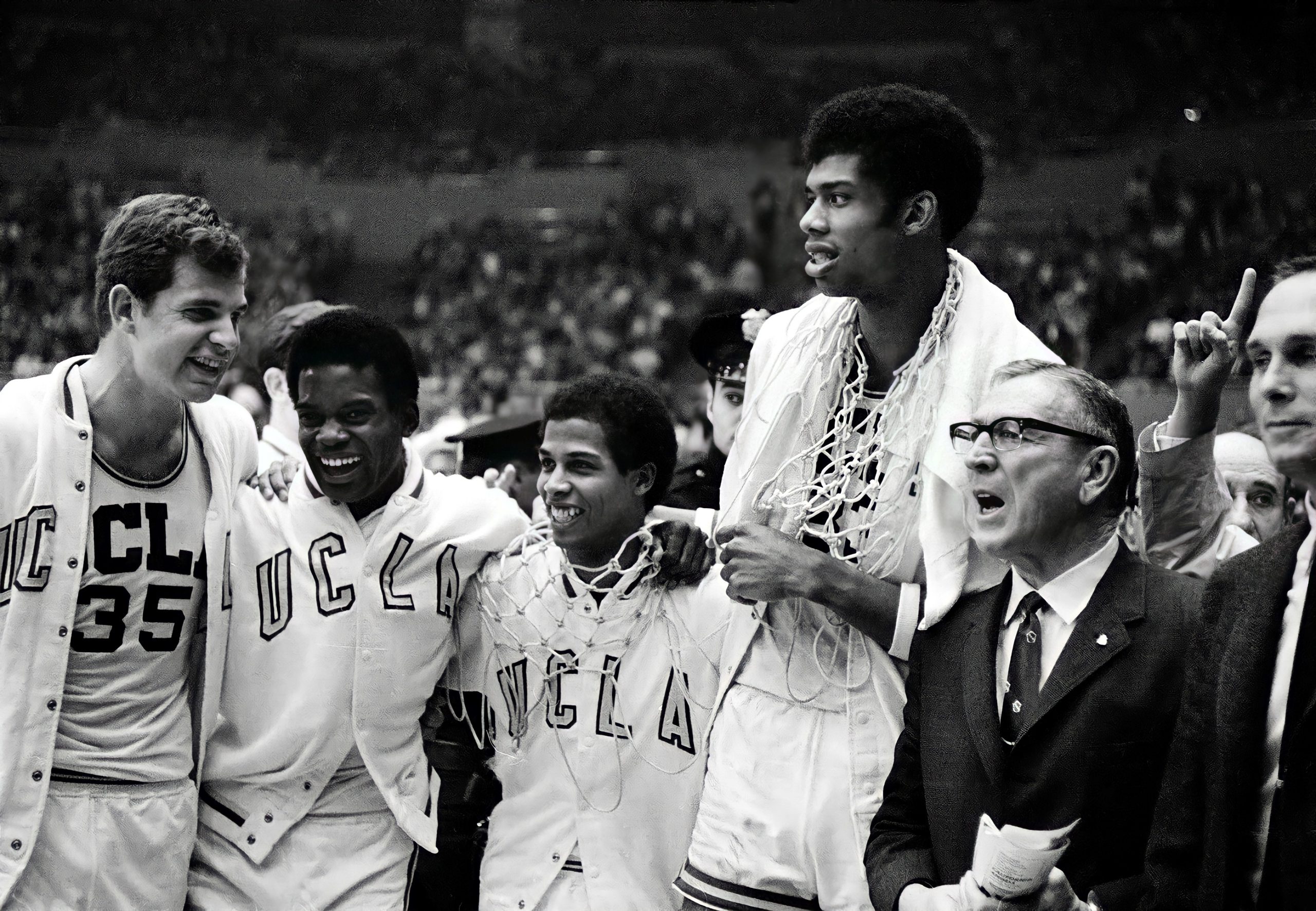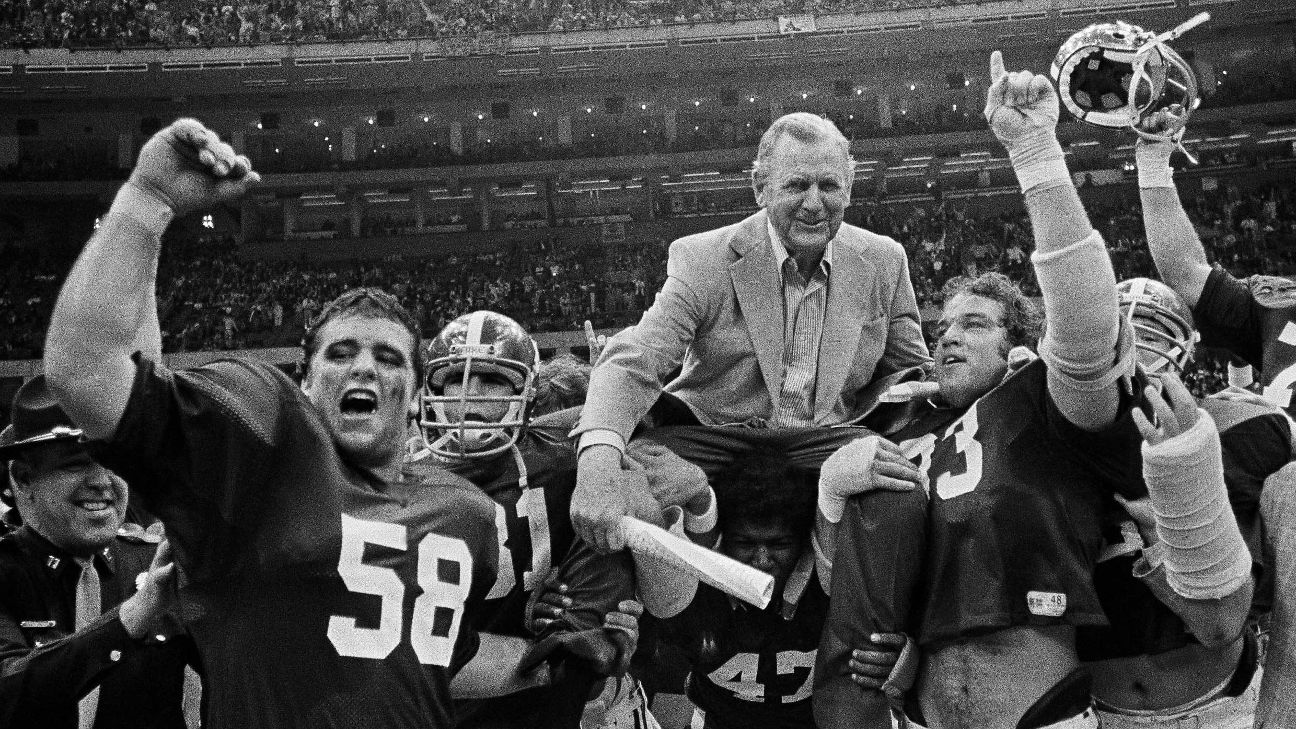When it comes to the world of sports, the impact of a great coach can be transformative. Not only do they develop game-winning strategies, but they also inspire athletes and ignite passion and dedication within their teams. The greatest coaches in sports history have left indelible marks on their respective sports, shaping the careers of countless athletes and often changing the games themselves. This article will explore the top ten greatest coaches in sports history, delving into their achievements, coaching styles, and the lasting legacies they have created.
Here are the Top 10 Greatest Coaches in Sports History
1. Vince Lombardi – Football
Vince Lombardi’s coaching career is a testament to the power of effective leadership and a well-disciplined approach. Before Lombardi took over as head coach, the Green Bay Packers were struggling, having not won a championship in nearly two decades. Lombardi’s arrival in 1959 marked a turning point. Within a year, he led the Packers to the NFL Championship Game and, over the next decade, to five NFL Championships, including the first two Super Bowls in 1967 and 1968.

Lombardi’s coaching philosophy was built on the foundation of hard work, discipline, and the relentless pursuit of success. He was known for his detailed game plans and demanding practice sessions, which were designed to prepare his players for any game situation. Lombardi’s ability to motivate his players was unmatched. He fostered a winning mentality that made his players believe in themselves and their teammates. His famous “Vince Lombardi Trophy,” awarded to the Super Bowl winners, symbolizes excellence in football, encapsulating his enduring impact on the sport.
Moreover, Lombardi’s influence extended beyond the tactical aspects of football. He was a pioneer in breaking racial barriers in the NFL. During a time when segregation was still prevalent in the United States, Lombardi insisted on integrated accommodations for his players during training and road games. He judged players and coaches solely on their abilities and work ethic, which not only enhanced team morale but also promoted equality and respect within the locker room.
Lombardi’s legacy is also marked by his contributions to coaching education. His methods and motivational techniques have been studied and emulated by countless coaches across various sports. His speeches and writings on leadership and success remain popular in business and sporting contexts, proving that his teachings transcended the realms of football.
2. Sir Alex Ferguson – Soccer
Sir Alex Ferguson’s tenure at Manchester United is one of the most illustrious in football (soccer) history. From 1986 to 2013, Ferguson won 38 trophies, including 13 Premier League titles and two UEFA Champions League titles. His ability to rebuild and adapt his teams to maintain competitiveness over nearly three decades is unmatched. Ferguson was known for his fiery personality and psychological mastery in managing players, which often led to dramatic late-game comebacks, famously dubbed “Fergie Time.”

Under Ferguson, Manchester United achieved immense success, including 13 Premier League titles, five FA Cups, and two UEFA Champions League titles. His ability to continually rebuild the team across different football generations helped maintain the club’s success over an extended period. Ferguson was particularly skilled in developing young talent, with players like David Beckham, Ryan Giggs, and Cristiano Ronaldo flourishing under his guidance.
Ferguson’s tactical flexibility was another hallmark of his coaching prowess. He was known for his psychological tactics, often outwitting opponents with unexpected formations and strategies. His teams were versatile, able to control games with slow, methodical play or win through fast-paced, attacking football. This adaptability made it exceptionally difficult for opponents to prepare and play against Manchester United.
His legacy also includes the impact he had on player management and development. Ferguson created a family-like atmosphere at United, fostering strong relationships with his players but also maintaining enough authority to discipline them when necessary. His management of star players and big personalities is particularly noted, balancing individual player needs with the team’s goals.
Ferguson’s retirement in 2013 marked the end of an era, but his influence on football remains profound. His strategies, leadership style, and dedication to the sport continue to be studied by coaches and managers, underscoring his lasting impact on world football.
3. John Wooden – Basketball
John Wooden, also known as the “Wizard of Westwood,” coached UCLA men’s basketball to an unprecedented level of success. Wooden’s teams won ten NCAA national championships in 12 years, including a record seven in a row from 1967 to 1973. His coaching philosophy went beyond basketball, focusing on building character and instilling values such as hard work, dedication, and personal integrity. Wooden’s “Pyramid of Success” is a motivational and instructional guide widely used not only in sports but also in personal development and business environments.

Wooden’s teams were known for their precision and efficiency, often dominating opponents with superior conditioning and teamwork. His emphasis on fundamentals and execution led to an unmatched era of dominance in college basketball. From 1964 to 1975, Wooden’s UCLA teams won ten national championships, including an 88-game winning streak, which remains a record in men’s basketball.
His coaching methods emphasized the importance of preparation and attention to detail. Wooden would start each season teaching his players how to properly put on their socks and lace up their shoes to prevent blisters. This meticulousness was a metaphor for his broader philosophy that small details contribute to big successes.
Wooden’s influence extended beyond his players. He was a mentor and a role model who prioritized education and character over winning at all costs. Many of his players went on to be successful both on and off the court, attributing their achievements in life to the lessons learned from Coach Wooden. His legacy lives on through the John R. Wooden Award, given annually to the most outstanding men’s and women’s college basketball players.
4. Phil Jackson – Basketball
Phil Jackson, often referred to as the “Zen Master,” is renowned for his use of Eastern philosophy and unique coaching techniques that focused on mindfulness and group cohesion. Coaching in the NBA from 1989 to 2011, Jackson won a record 11 NBA championships, six with the Chicago Bulls and five with the Los Angeles Lakers. His management of star athletes like Michael Jordan, Kobe Bryant, and Shaquille O’Neal, and his ability to channel their talents within the framework of his triangle offense, set him apart as one of the greatest coaches in basketball history.

Jackson’s coaching philosophy was heavily influenced by his belief in mindfulness and holistic player development. He employed techniques such as yoga and meditation to improve players’ focus and mental strength. His approach was not only about physical or technical basketball skills but also about cultivating a deeper psychological resilience and team cohesion.
His strategic implementation of the triangle offense was pivotal in his team’s success. This offensive strategy emphasized reading the defense and making decisions based on the flow of the game rather than executing preset plays. It required high basketball IQ and versatility from the players, and Jackson was a master at teaching and executing this system.
Jackson’s management of star athletes and strong personalities like Michael Jordan, Kobe Bryant, and Shaquille O’Neal demonstrated his skill in blending individual talents with team objectives. He fostered an environment where players were encouraged to be themselves yet work cohesively within the team framework. This balance between individual autonomy and team unity was a key to his teams’ success.
Phil Jackson’s legacy in the NBA is not just in his championship rings but also in his innovative approach to coaching. His strategies and practices have influenced the coaching philosophy of numerous coaches across the sports world, making him a central figure in discussions about the greatest coaches in sports history.
5. Bill Belichick – Football
Bill Belichick, head coach of the New England Patriots since 2000, has led his team to six Super Bowl wins out of nine appearances. His strategic acumen, particularly in defensive game planning, has been central to the Patriots’ NFL dominance. Belichick is known for his meticulous preparation and adaptability, often crafting game strategies that exploit opponents’ weaknesses while adjusting tactics mid-game to secure wins. His legacy is not only defined by his championships but also by his influence on the game and the coaching tree he has developed.

Belichick’s approach to football is methodical and analytical. He is known for his extensive preparation, often studying countless hours of game footage to devise strategies that exploit opponents’ weaknesses. His game plans are highly detailed, and tailored to neutralize the strengths of the opposition while maximizing his team’s advantages.
One of Belichick’s notable coaching traits is his adaptability. He is willing to adjust his strategies even in the middle of a game, a quality that has led to many of the Patriots’ dramatic comebacks and close-game victories. This flexibility has also been evident in his roster management, where he has been known to change player roles based on the specific needs of each game.
Belichick’s influence on the NFL extends beyond his game-day decisions. His coaching tree, the coaches who have worked under him and have gone on to be head coaches in the NFL, is extensive and includes successful names like Bill O’Brien and Matt Patricia. His practices and methodologies are studied by coaches at all levels of football, showcasing his impact on the sport.
Moreover, Belichick’s legacy is also defined by the culture he has built within the Patriots organization—a culture of accountability, precision, and a relentless pursuit of victory. While he is often criticized for being reserved and secretive, there is no denying his effectiveness and the respect he commands among football professionals.
6. Scotty Bowman – Ice Hockey
Scotty Bowman holds the record for the most wins in NHL history as a coach and has the most Stanley Cup playoff wins of any coach. Over his career with the St. Louis Blues, Montreal Canadiens, Buffalo Sabres, Pittsburgh Penguins, and Detroit Red Wings, Bowman won nine Stanley Cups. Known for his deep understanding of the game and his ability to adjust his coaching style to fit the strengths of his teams, Bowman’s name is often the first mentioned in discussions of hockey coaching greatness.

Bowman was known for his rigorous approach to coaching, often demanding a high level of performance and preparation from his players. His teams were well-disciplined and strategically superior, often outplaying opponents through tactical brilliance and exhaustive preparation. Bowman’s ability to read the game and make quick adjustments during matches set him apart from many of his contemporaries.
His tenure with the Montreal Canadiens in the 1970s was particularly notable. Under his leadership, the Canadiens won five Stanley Cups, including four consecutive from 1976 to 1979. During this time, his teams were dominant, showcasing a blend of strong defensive play and offensive power. Bowman’s coaching style during these years influenced many future coaching strategies in the NHL.
Bowman’s legacy also includes his capacity to manage and develop players. He was adept at using players in roles that maximized their skills and contributed to the team’s overall success. His career in Detroit, culminating in three Stanley Cups in 1997, 1998, and 2002, demonstrated his ability to adapt to the new realities of the NHL, including the integration of European playing styles and tactics.
Scotty Bowman is often cited as a benchmark for coaching success in professional sports, particularly in hockey, where his strategies, leadership, and longevity remain unmatched. His influence is evident in how modern NHL games are coached and played, and his contributions to hockey coaching are still referenced in coaching seminars and team strategies across the league.
7. Pat Summitt – Women’s Basketball
Pat Summitt coached the University of Tennessee Lady Vols basketball team from 1974 to 2012, winning eight NCAA championships. Summitt’s intense coaching style and her uncompromising pursuit of excellence drove her teams to consistently perform at the highest levels. She was a pivotal figure in advancing women’s athletics, not just through her undeniable success but also through her role as a mentor and advocate for female athletes. Summitt left an unmatched legacy in women’s basketball, both on and off the court.

Pat Summitt’s career as the head coach of the University of Tennessee Lady Vols redefined women’s basketball at the collegiate level. Her leadership not only led to eight NCAA championships but also helped elevate women’s college basketball to a higher level of popularity and competitiveness.
Summitt’s coaching philosophy was centered on intense preparation and an unyielding pursuit of excellence. She demanded the best from her players in every practice and game, which drove her teams to perform at their highest levels consistently. Her practice sessions were legendary for their intensity and effectiveness, often focusing on fundamentals, conditioning, and mental toughness.
Her impact on women’s basketball was profound, as she was a pioneer in promoting equality for women’s sports. Her advocacy efforts contributed significantly to the growth of women’s basketball, ensuring better facilities, more media coverage, and greater respect for female athletes. Summitt’s role in the development of the Women’s Basketball Coaches Association (WBCA) further underscores her commitment to advancing the sport.
Summitt’s legacy also includes her influence on her players, many of whom have gone on to successful careers in basketball and other fields. Her emphasis on academics and character development ensured that her players were prepared not just for basketball, but for life after sports. Her leadership style, often characterized by her direct and passionate approach, has been studied and emulated by many other coaches in various sports.
Pat Summitt’s contributions to basketball and sports in general are enduring. Her commitment to excellence, her pioneering spirit, and her profound impact on her players’ lives have left an indelible mark on the world of sports.
8. Bear Bryant – Football
Paul “Bear” Bryant is an iconic figure in college football, primarily known for his 25-year tenure as the head coach of the University of Alabama football team. Under his leadership, Alabama won six national championships and 13 conference championships. Bryant’s coaching style was characterized by tough discipline and a demanding nature that sought to build character and determination in his players. His influence extended beyond victories, shaping the culture of Alabama football and setting standards that are still celebrated today.

Paul “Bear” Bryant is a legendary figure in American college football, known for his tenure as head coach of the Alabama Crimson Tide. His impact on college football is immense, having led Alabama to six national championships and 13 conference championships over a 25-year career.
Bryant’s coaching philosophy was built on discipline, toughness, and a strong work ethic. He believed in the physical and mental conditioning of his players, often pushing them to their limits to prepare them for the challenges of the game. His training camps were famously grueling, but they were also instrumental in building the resilience and determination that defined his teams.
Bryant was also a master of motivation. He had a unique ability to inspire his players to perform beyond their perceived limits. His leadership style was authoritative yet caring; he was a father figure to many of his players, influencing their lives on and off the field. Bryant’s commitment to his players’ success was evident in his emphasis on their academic and personal development, ensuring that they became well-rounded individuals.
His legacy at Alabama goes beyond the records and championships. Bryant’s influence on college football was transformative, contributing to the sport’s growth in popularity and competitiveness. He was a pioneer in recruiting and player development, and his methodologies in team building and game strategy have been studied by football coaches across the nation.
Bear Bryant’s enduring legacy is encapsulated in the Bryant-Denny Stadium, named in his honor, and the Paul “Bear” Bryant Award, given annually to college football’s top coach. His impact on the sport and the lives of his players continues to be felt long after his passing.
9. Rinus Michels – Soccer
Rinus Michels, known as the father of “Total Football,” was a pioneering figure in soccer. His coaching philosophy revolutionized the sport during his time with Ajax and the Netherlands national team in the 1970s. Michels promoted a fluid style of play where no player had a fixed role, allowing for a dynamic and adaptable formation. His methods influenced generations of coaches and players, and his ideas remain deeply embedded in the fabric of modern soccer.
Rinus Michels, known as the father of “Total Football,” is celebrated for his revolutionary approach to soccer. His coaching career, particularly with Ajax and the Netherlands national team, had a profound impact on the way the game is played and understood.

Michels’ “Total Football” philosophy emphasized fluidity, where players were expected to be able to play in any position, allowing the team to add dynamically pt to any game situation this approach not only maximized the talents of individual players but also made it extremely difficult for opponents to defend against. Michels’ Ajax teams of the late 1960s and early 1970s were known for their cohesive play, technical skill, and tactical intelligence.
His impact was not limited to club football. As coach of the Netherlands national team, Michels led his country to the 1974 World Cup final. Although they did not win the championship, the Dutch team’s style of play captivated the football world. Michels’ techniques influenced generations of coaches and players, with elements of his philosophy evident in modern soccer tactics.
Michels’ legacy is also marked by his contributions to coaching education. He was a proponent of continuous learning and adaptation in coaching, often incorporating new ideas and technologies into his training sessions. His writings and teachings on soccer tactics and philosophy continue to be influential in the coaching community.
Rinus Michels was not just a coach but a visionary who changed the landscape of soccer. His ideas reshaped how soccer is coached and played, making him one of the most important figures in the sport’s history.
10. Valery Lobanovskyi – Soccer
Valery Lobanovskyi is revered for his innovative approaches to coaching with Dynamo Kyiv and the Soviet Union national team. His use of statistics and science to enhance player performance and team dynamics was ahead of its time. Lobanovskyi’s teams were known for their rigorous discipline, physical fitness, and tactical intelligence, reflecting his background in engineering and his systematic approach to soccer coaching.

These coaches, through their innovative strategies, inspirational leadership, and enduring legacies, have set benchmarks in their sports that continue to influence and inspire. Each coach brought unique qualities and philosophies to their teams, but all shared a common ability to foster talent, instill discipline, and lead their teams to victory. As we delve deeper into the specifics of their careers and contributions, we can further appreciate the profound impact they have had not only on their sports but also on the athletes they mentored and the fans who watched them.
Valery Lobanovskyi is renowned for his scientific approach to soccer coaching, which has had a lasting impact on the sport. As the head coach of Dynamo Kyiv and the Soviet Union national team, Lobanovskyi’s methods were ahead of their time, integrating rigorous physical training, detailed statistical analysis, and a disciplined tactical system.
Lobanovskyi’s coaching philosophy was based on the idea that soccer was a science. He employed a highly systematic approach to training, emphasizing the physical and technical development of his players. He was one of the first coaches to use computers to analyze game data, which he used to improve team performance and strategy.
His teams were known for their fitness, organization, and tactical discipline. Under Lobanovskyi, Dynamo Kyiv won numerous Soviet Top League titles and European trophies, including the UEFA Cup Winners’ Cup. His style of play was characterized by fast, aggressive tactics that focused on maintaining possession and applying constant pressure on the opposition.
Lobanovskyi’s impact on soccer extends beyond his titles and awards. He was a pioneer in the use of sports science in football, and his emphasis on a data-driven approach to coaching has influenced the modern game. Many contemporary coaching strategies, particularly in terms of player fitness and tactical analysis, have roots in Lobanovskyi’s methodologies.
Valery Lobanovskyi’s legacy is that of a revolutionary figure in football coaching. His innovative use of technology and his scientific approach to the game have left a lasting mark on how soccer is coached and played around the world.









